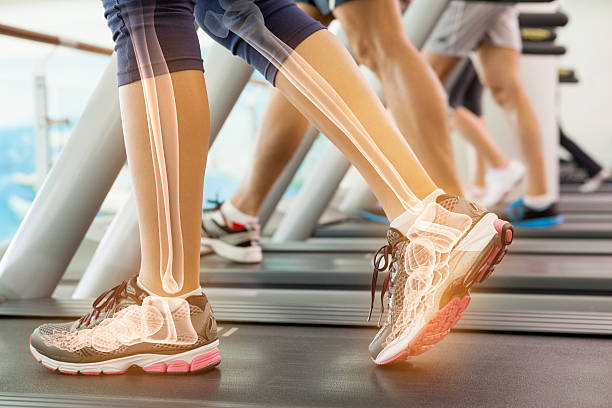Simple Tips To Keep Your Joints Strong And Healthy

Aches and pains are a normal part of life. However, using the correct techniques and practices can assist you to keep your joints healthy and robust.
Regular exercise keeps joints and muscles elastic. Choose low-impact workouts, like cycling, swimming and walking which don't cause jarring or strain your joints. Drink plenty of water to remain hydrated and stay clear of dehydration, which can irritate your joints.
1. Keep Active
Being older does not mean you'll have to live with stiffness and joint pain. Regularly exercise and lift weights using the correct method. In https://www.dziennikwschodni.pl/artykuly-sponsorowane/ranking-najlepszych-produktow-na-stawy-2023-dieta-na-zdrowe-stawy-i-kosci,n,1000321866.html, you'll find information about bones.
Keeping moving reduces stress on your joints and improves the balance and posture. You can incorporate yoga exercises in your workout routine to enhance the range of motion in your joints. Yoga as well as Tai Chi, both of which use your entire body to perform, will aid in keeping you fit and ease joint pain.
The strength training exercises build muscles to help joints. For best results, do two complete strength training sessions per week. In addition, increasing your calcium as well as vitamin D consumption is a second key to joint health. Calcium helps strengthen your bones, and reduce the risk of osteoporosis. Calcium can be found within dairy foods, as well as green leafy vegetables, and kale.
2. Take Foods That Aren't Inflammatory
Certain foods should be avoided if your condition if you suffer from chronic inflammation. The high amount of processed, greasy and sugary foods and drinks can trigger internal inflammation that can impact joints.
Fish (salmons, tunas, and sardines), olive oil, beans, tomatoes and nuts all form a an essential part of a healthy and balanced diet. Anti-inflammatory herbs and spices such as garlic, turmeric and ginger can also be beneficial.
Multivitamins are another method to replenish the nutrients that your diet may lack, including vitamin D and calcium that build bones Vitamin C, which helps repair tissue and is folic acid, which eases pain. Drinking enough water is also vital try to drink about 91 ounces per day for enough water hydration. It helps to make synovial fluid that lubricates bones and helps protect them by keeping them from rubbing together too much. This also keeps your body hydrated and flushes out the toxins.
3. Take Plenty of Water
Hydration is one of the most important components of the synovial fluid which cushions joints. In the event of dehydration, your body will pull water out of cartilage or other places for compensation.
The cartilage is less elastic and more susceptible to damage. Cartilage acts as a cushion and helps reduce friction between bones when they move. This is why it's vital to keep the strength of your cartilage.
Drinking plenty of water stimulates the production of synovial fluid. It helps reduce inflammation and promotes development of cartilage cells. Hydration is also beneficial for muscles which help support joints better.
4. Be Hydrated
It is crucial to ensure your health and well-being by drinking plenty of water. If you suffer from the rheumatoid joint (RA) drinking enough water is more crucial. Insufficient fluids can trigger the joints to become stiff. that protect your joints to not function properly. Additionally, dehydration can make you more stiff and painful as well as decrease the amount shock absorbed by cartilage.
Synovial fluid can be described as a dense fluid that is watery and helps to lubricate joints. If you're not hydrated, your body may not produce enough water, leading to more friction when you move joints. The water can also reduce the inflammation and encourage the development of cartilage that is healthy. Most important is to drink lots of water throughout the entire day!
5. Get Enough Sleep
A joint (say"JOON") is the place in which bones come together. The ends of bones have cartilage, which is called KAHRT-uhlij. It helps reduce friction between bones as well as prevent them from rubbing together while moving.
Sleep deprivation can cause joint pain to worsen. A good night's rest is, therefore, vital. Aim for seven to nine hours of rest each every night, on a consistent schedule.
The proper posture of your body during the night is a great way to ease joint aches. Sleep on a firm mattress with pillows that support different areas of the body, such as a neck pillow for back or side sleepers to ensure your spine is aligned.
Incorporating core strengthening exercises into your exercise routine could enhance your balance and stability making it less likely that you slip and hurt yourself. Pilates and yoga are low-impact but can build strength in the muscles of your body, particularly the ones that support joints.